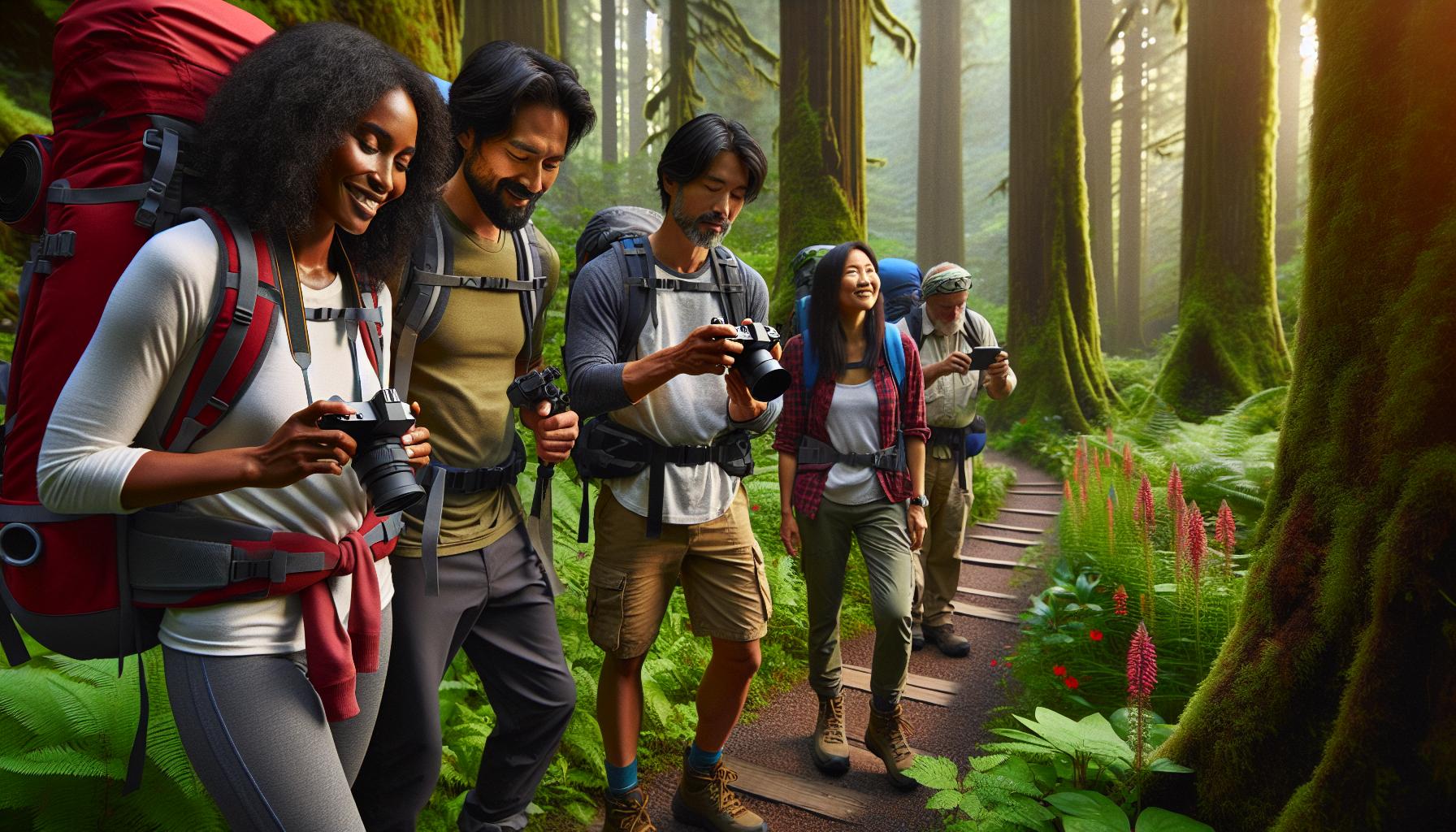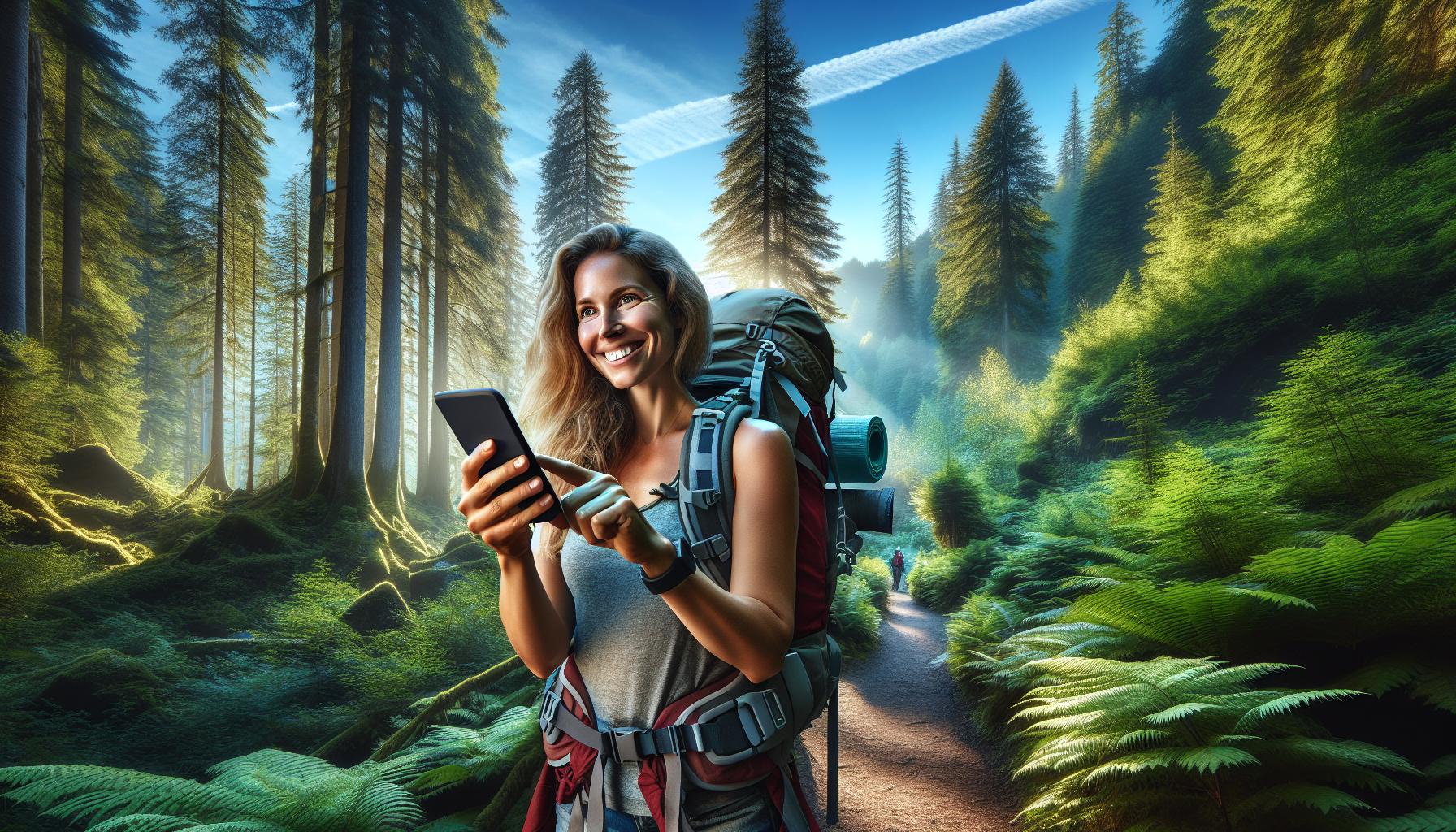Key Takeaways
- Growing Demand for Unique Experiences: Adventure tourism is increasingly favored as travelers seek exhilarating activities that offer personal growth and deeper connections with nature.
- Sustainability Trends: More than 60% of adventure tourists prioritize eco-friendly practices, prompting destinations to adopt responsible tourism initiatives.
- Technological Advancements: Innovations like virtual and augmented reality enhance the travel experience, enabling users to virtually explore destinations and activities before they arrive.
- Cultural Immersion: Tourists are showing heightened interest in authentic experiences, such as culinary tours and community-based activities, which foster local engagement and understanding.
- Health and Wellness Integration: Adventure tourism is evolving to include wellness-oriented activities, such as yoga retreats and fitness programs, appealing to health-conscious travelers.
- Influence of Social Media: Platforms like Instagram and TikTok play a pivotal role in shaping adventure tourism choices, with user-generated content inspiring and informing travel decisions.
Adventure tourism is evolving rapidly, capturing the hearts of thrill-seekers and nature enthusiasts alike. As travelers increasingly prioritize unique experiences over traditional vacations, the demand for adrenaline-pumping activities has soared. From trekking in remote landscapes to engaging in extreme sports, adventure tourism offers a chance to connect with nature and push personal boundaries.
Recent trends reveal a shift towards sustainable practices and immersive experiences. Tourists are now seeking eco-friendly options that allow them to explore the great outdoors while minimizing their environmental impact. This growing awareness is shaping the future of adventure tourism, encouraging destinations to innovate and cater to conscious travelers. As the industry adapts, it’s essential to stay informed about the latest trends that define this exciting sector.
Adventure Tourism Trends
Adventure tourism thrives on experiences that blend excitement with the beauty of nature. Thrill-seekers gravitate towards activities such as trekking, rock climbing, and mountain biking. These pursuits not only fulfill desires for adrenaline but also foster deep connections with the environment.
Sustainable tourism practices are transforming how destinations cater to adventure enthusiasts. Travelers increasingly prefer eco-friendly options, driving sectors to adopt responsible practices. Evidence shows that more than 60% of adventure tourists prioritize sustainability, influencing the types of experiences offered.
Technological integration enhances adventure tourism. Mobile apps provide real-time information on outdoor activities and safety measures. Virtual reality experiences help travelers preview adventures, increasing engagement with potential destinations.
Cultural immersion complements adventure tourism trends. Tourists express interest in authentic local experiences, including culinary explorations and traditional festivals. Engaging with local communities enriches adventure tourism, allowing travelers to gain insights into different cultures.
Health and wellness tourism intersects with adventure activities. Many travelers look for options that promote physical fitness and mental well-being. Yoga retreats in serene locations and active wellness programs are on the rise, appealing to a health-conscious demographic.
Overall, adventure tourism reflects a shift towards personalized, responsible, and immersive experiences. As preferences evolve, destinations must adapt to attract eco-aware and experience-driven travelers.
Popular Adventure Activities

Adventure tourism encompasses a variety of thrilling activities appealing to both nature lovers and thrill-seekers. Below are some popular activities currently trending in the adventure tourism landscape.
Outdoor Exploration
Outdoor exploration activities foster deep connections with nature. Travelers participate in hiking, which not only challenges their physical limits but also offers breathtaking views of diverse landscapes. Kayaking provides opportunities for engaging with rivers and coastlines, allowing adventurers to navigate through calm waters or challenging rapids. Wildlife safaris attract participants aiming to observe animals in their natural habitats, promoting conservation awareness among travelers. Cycling tours combine physical fitness with scenic routes, encouraging tourists to engage with the environment actively.
Cultural Experiences
Cultural experiences enrich adventure tourism by offering authentic insights into local traditions. Culinary tours enable travelers to savor regional cuisines while learning about local cooking techniques. Participating in traditional festivals allows tourists to immerse themselves in unique customs and celebrations. Community-based tourism introduces visitors to rural lifestyles, promoting sustainable practices and providing economic benefits to local populations. Workshops in arts and crafts encourage travelers to engage in local cultural expressions, creating memorable experiences while supporting community artisans.
Technological Innovations in Adventure Tourism

Technological innovations play a critical role in enhancing the adventure tourism experience. These advancements not only improve safety and engagement but also transform how travelers connect with their environments.
Virtual Reality and Augmented Reality
Virtual reality (VR) and augmented reality (AR) offer immersive experiences that heighten interest in adventure tourism. VR enables travelers to explore remote destinations and try activities like skydiving or scuba diving from their homes. According to a study by the Virtual Reality Developers Association, up to 70% of users reported enhanced excitement about physical travel after experiencing VR simulations. Similarly, AR applications overlay digital information onto the real world, allowing travelers to identify landmarks or learn about local flora and fauna while hiking or biking. This blend of technology and adventure creates a captivating way to engage with destinations before arrival.
Mobile Applications for Adventure Travelers
Mobile applications streamline planning and enhance the overall adventure experience. Adventure-specific apps provide travelers with essential information, such as nearby attractions, trail maps, and safety tips. A survey revealed that 80% of adventure travelers rely on mobile apps for navigation and activity recommendations. Some notable apps offer features such as offline capabilities, interactive maps, and community reviews to guide users in making informed choices. Fitness tracking integration allows travelers to monitor their physical performance during activities like hiking or kayaking, enhancing both safety and enjoyment. The convenience and accessibility of mobile applications continue to shape adventure tourism, making experiences more enjoyable and organized.
Sustainability in Adventure Tourism

Sustainability is now central to adventure tourism, reflecting travelers’ desire for eco-friendly options and responsible tourism practices. This shift encourages destinations to innovate in sustainability initiatives.
Eco-Friendly Practices
Eco-friendly practices are crucial in adventure tourism. Tour operators increasingly implement measures to reduce carbon footprints, such as using renewable energy sources and prioritizing low-impact transportation methods. Travelers often prefer activities with minimal disturbance to wildlife and habitats. For instance, eco-lodges often utilize local materials and renewable energy, enhancing environmental sustainability. Additionally, many destinations promote leave-no-trace principles, encouraging tourists to respect nature while enjoying outdoor activities. Over 70% of adventure travelers indicate they’d change plans if a more sustainable option is available, showcasing a strong preference for responsible tourism choices.
Local Community Engagement
Local community engagement fosters cultural sustainability in adventure tourism. Tourists now prioritize experiences that benefit local populations and preserve traditional practices. Many adventure tourism providers collaborate with indigenous communities to offer authentic cultural experiences, such as traditional cooking classes or craft workshops. This connection not only enriches travelers’ experiences but also promotes economic development within the communities. Furthermore, supporting local guides can enhance the overall adventure, as locals possess unique insights into their environment. In 2022, 65% of adventure tourists expressed interest in engaging with local communities during their travels, highlighting a growing trend towards immersive and responsible tourism.
Impact of Social Media on Adventure Tourism Trends
Social media significantly influences adventure tourism. It serves as a powerful platform for sharing experiences, photos, and itineraries that inspire others to explore new destinations. Travelers increasingly rely on platforms like Instagram and TikTok to discover trending activities and breathtaking locations. User-generated content highlights unique experiences, attracting a wider audience.
Content creator engagement drives demand for adventure activities. Influencers often promote experiences that generate interest and motivate followers to pursue similar adventures. As travelers seek authenticity, they gravitate towards locations featured by popular influencers, shaping travel decisions.
Social media also facilitates real-time sharing of experiences. Travelers post updates during their adventures, providing immediate insights into locations, safety, and activities. This transparency fosters trust and encourages potential tourists to visit. Reviews and recommendations contribute to informed decision-making, enhancing the adventure tourism experience.
Furthermore, hashtags play a crucial role in marketing. Tourists utilize hashtags to discover specific experiences and connect with like-minded individuals. Destinations leverage these hashtags to promote their offerings, increasing visibility and attracting a targeted audience.
The interplay between social media and adventure tourism cultivates trends that align interest with opportunity. As travelers seek unique experiences, social media continues to shape the landscape of adventure tourism, highlighting the need for destinations to adapt to this dynamic influence.
Adventures Positively Impact
Adventure tourism is transforming rapidly as travelers seek unique experiences that connect them with nature while promoting sustainability. The growing emphasis on eco-friendly practices reflects a shift in priorities among adventure seekers. They’re not just looking for thrills; they want to ensure their adventures positively impact the environment and local communities.
Technological advancements are enhancing these experiences, making them safer and more engaging. Social media continues to play a crucial role in shaping trends, inspiring new adventures and fostering a sense of community among travelers. As the industry evolves, destinations must adapt to meet the desires of eco-conscious adventurers, ensuring that the future of adventure tourism remains exciting and responsible.